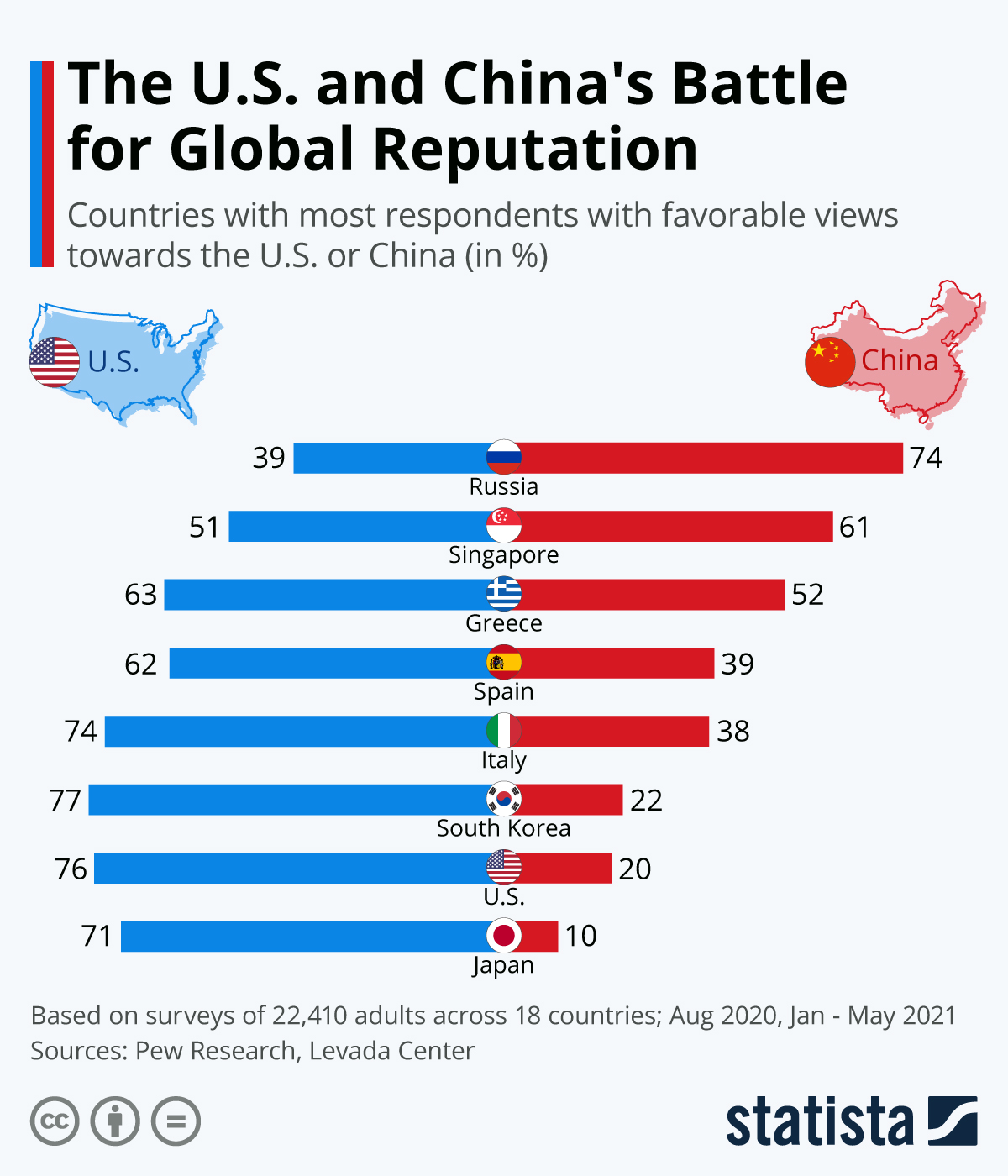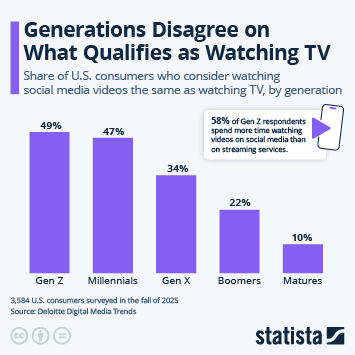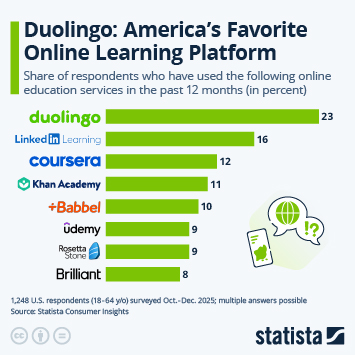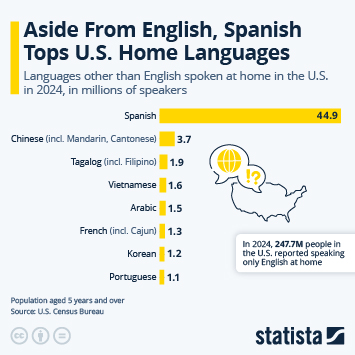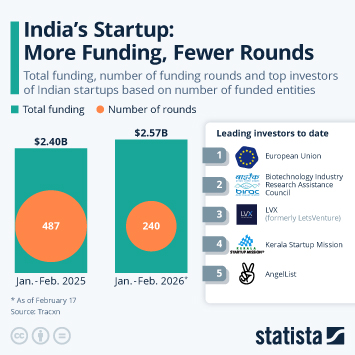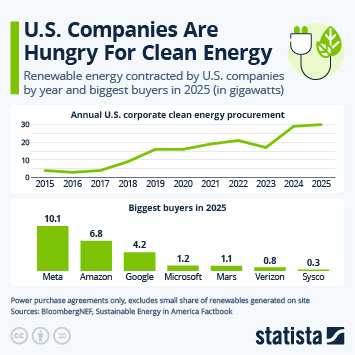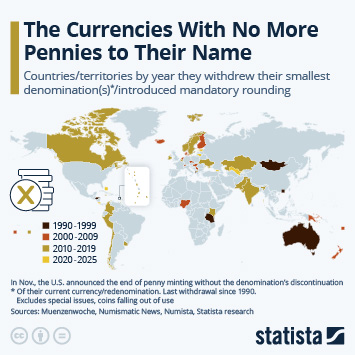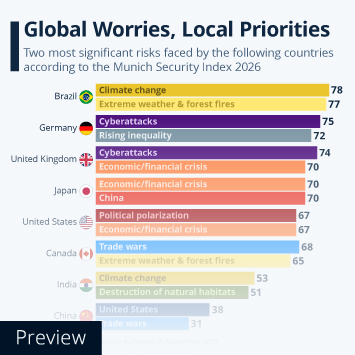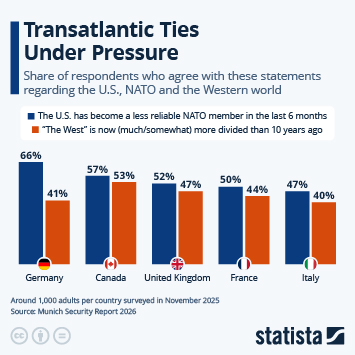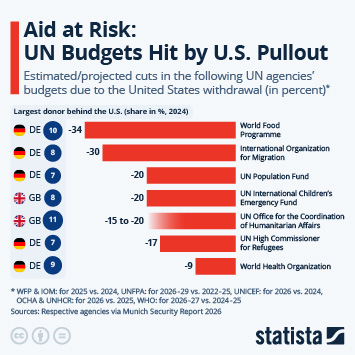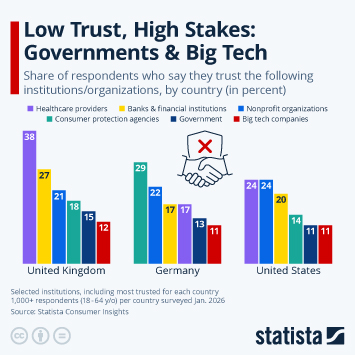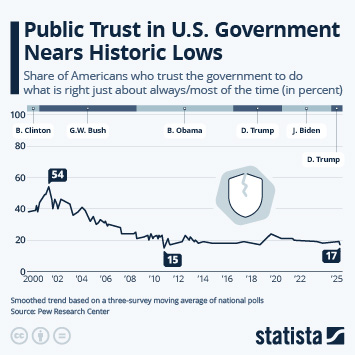Out of 18 countries surveyed in two separate surveys by Pew Research and the Levada Center, the residents of only two hold more favorable views of China than of the United States. In some of the remaining countries, the race is closer than expected as our chart indicates.
The good standing of the People's Republic in Russia and Singapore can easily be explained. China is Russia's premier trading partner both regarding imports and exports with a trade volume of 104 billion U.S. dollars in 2020 next to Germany with 42 billion U.S. dollars and the Netherlands with 29 billion U.S. dollars. Singapore's population, on the other hand, is made up of roughly three-quarters ethnic Chinese, and official diplomatic relations between the two states have been thriving since the early 1990s. Still, 51 percent of respondents in the sovereign island state held a favorable view of the United States. This could be seen as a nod towards its role as a mediator in the APAC region that managed to bring together former U.S. president Donald Trump and North Korean leader Kim Jong Un in 2019. On the other end of the spectrum, Japanese residents hold the People's Republic in contempt, possibly due to the rift widened by the Second Sino-Japanese War starting with the Marco Polo bridge incident in July 1937 or Japan's invasion of Manchuria in September 1931 depending on the perspective. Only 10 percent of respondents saw China in a favorable light, while 71 percent held the United States in high esteem.
Even though China has reclaimed its role as the U.S.' leading trade partner in 2020 after President Trump's tariffs on Chinese goods hampered imports from the People's Republic, relations between the two superpowers are still fraught. In the latest clash for geopolitical dominance, China's foreign ministry spokesman Zhao Lijian called the establishment of the naval Aukus defence pact between Australia, the UK and the U.S. a reinstatement of a "Cold War [...] mentality" and an accelerator of the global arms race.

